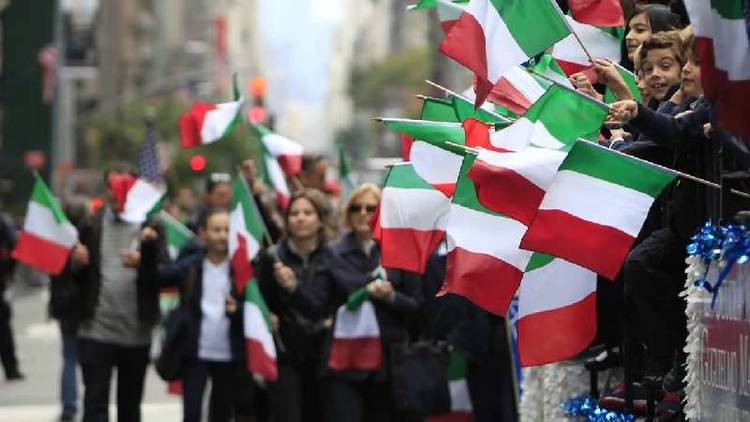


I have never marched in any Columbus Day Parade, nor have I ever watched one as a sidewalk spectator. It may seem odd, but I did march, once, in a Brooklyn St. Patrick’s Day parade. In that case, even though I hate parades, and crowds, and furthermore am not even half-Irish, I did so because I was personally invited by an Irish-American group – The Friendly Sons of Saint Patrick. They knew I wrote about Brooklyn’s ethnic groups and asked If I would help them plan their anniversary celebration. The Irish have a high regard for writers. I am a member of the Polish Institute of Arts and Sciences in America, even though I am not Polish, I am invited to: “Join the Kosciuszko Foundation as we march in the 80th annual Pulaski Day Parade on Sunday, October 1. We'll meet at 12:00 p.m. on 5th Avenue at East 37th Street. Dress in white and red and bring Polish flags. Then, meet us at the KF House for traditional Polish bigos and pierogies.” For Poles, intellectuals are central to their sense of nationhood.
The New York City’s Columbus Day parade committee issues its more open invitation thusly: “The Columbus Day Parade is a fun filled parade that gets bigger and better every year. Participants from all over the world march in our parade with pride. The parade has become a global event with millions of viewers and over a half million spectators on the streets. We invite you to join us and experience this memorable day.” (my emphasis) To even half-Italian Americans, an invitation to “drop in in case you’re in the neighborhood,” is no invitation at all. But this year for me, the parade usually lead by one or another super-prominent rich and/or famous Italian or Italian American, is different and the Founder and Chairman of Barnes & Noble, Inc. Leonard Riggio, made it so. First of all, he and I are proud alums of Brooklyn Technical High School (he 1958 and me 1960). More importantly, as Grand Marshall of this year’s hotly contested Columbian celebration he became a literary Centurion by leading one hundred Italian American published authors at the head of the parade. Considering this a personal invite, I will be among them.
A few weeks ago I visited Sicily, the homeland of my mother’s parents Giralamo Cangialosi and Maria Antonetta Trentascosta. My mother once told me my grandfather lived in a palace in Marineo -- a hill town near Palermo with a Norman castle. Later she admitted he was the stable boy. Starting on Elizabeth Street in Manhattan, my grandparents began their struggle to make a better life for their family and despite anti-Italian bias they succeeded. They were buon educato, but not “well educated.” Higher education was a dream for their children’s children. They would be astonished by how much their grandchildren and greatgrandchildren have accomplished. I am sure that my fellow Technite, Leonard Riggio, didn’t know it, but he made a special space in this year’s parade for a half-Sicilian American author. He gave me and dozens of other writers a chance to honor our ancestors with our written words while joining with hundreds more who do so in a myriad of other ways. Grazie tante!
---
Jerry Krase, Emeritus and Murray Koppelman Professor at Brooklyn College CUNY,
Source URL: http://test.casaitaliananyu.org/magazine/focus/op-eds/article/why-i-became-first-time-marcher
Links
[1] http://test.casaitaliananyu.org/files/columbusjpg-1